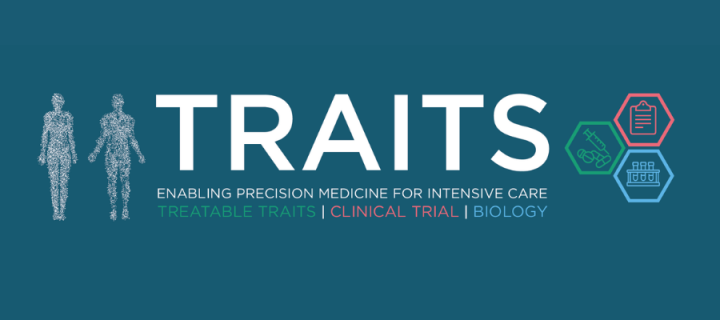Critical care trial hoping for first participant involvement this winter
CIR researchers have opened the first precision medicine trial of critically ill patients in the UK and are hoping to now recruit its earliest participants.

The first site has now opened at Edinburgh Royal Infirmary, marking a significant step.
TRAITS research programme plans to run in Intensive Care Units (ICUs) across Scotland. The key aim is to enable precision medicine to improve outcomes for critically ill patients. It is a collaboration between clinicians, methodologists, scientists, and patients. The randomised controlled trial tests whether outcomes can be improved in critically ill adults by matching measurable biological abnormalities at the bedside to a treatment.
The research programme – funded by the Chief Scientist Office (CSO), awarded through the Precision Medicine Alliance Scotland (PMAS), and led by the University of Edinburgh – uses a novel and efficient trial design that can test multiple interventions aligned to the ICU patient’s individual features.
Leading the platform randomised clinical trial is Professor Manu Shankar-Hari of the University of Edinburgh’s Centre for Inflammation Research.
Opening the first precision medicine trial of critically ill patients testing treatable traits in the UK represents a significant achievement and we’re very pleased to be part of this critical care research milestone for Scotland.
“Another major positive here is that we are part of the National Institute for Health and Care Research (NIHR) Associate Principal Investigator Scheme, and so TRAITS offers a valuable in-work training opportunity for new researchers to get involved and learn about clinical trials.
Professor Shankar-Hari’s research programme aims to enable precision immunomodulation – regulation and modulation of immunity that might be achieved by reducing or enhancing the immune response – in critically ill adults with sepsis and acute respiratory distress syndrome (ARDS).
We must champion precision medicine research approaches to healthcare, and TRAITS - the first UK trial of that kind to focus on critically ill patients - marks a major milestone for Scotland. “The aim of the Precision Medicine Alliance Scotland programme is to stimulate research and delivery of precision medicine approaches to the treatment and management of health conditions of major importance in Scotland, and the TRAITS team have to be congratulated for their progressive, collaborative thinking in this important area. I hope it will lead to valuable breakthroughs in our understanding of how best to enable time critical ICU interventions.
The TRAITS trial has been working with Patient and Public Involvement (PPI) partners from the very beginning, influencing its direction and delivery.
NRS Critical Care oversees research dealing with life-threatening conditions requiring sophisticated organ support and monitoring. Through quality research, the group aims to develop and monitor new therapies and interventions.
It is committed to actively involving patients, those who care for them, and the public in all aspects of the research process, including shaping future research activity.
TRAITS
(Please note this is a university mailbox, manned by administrative staff only so please do not include any personal or sensitive information in your initial email.)

